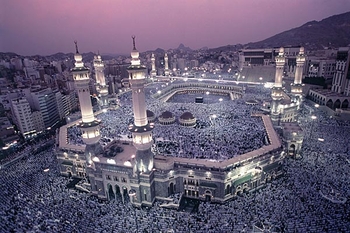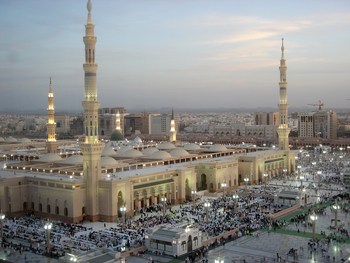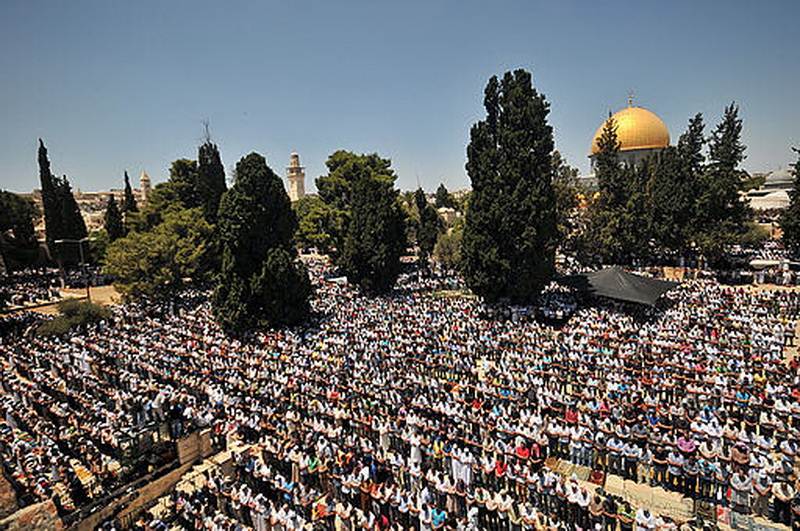Al-Jazeerah
ccun
 |
 |
 |
| Al-Haram Mosque in Makkah | The Prophet's Mosque in Madinah . | Al-Aqsa Mosque Compound in Jerusalem |
Islam: A Scientific View of God's Message to Humanity
By Hassan Ali El-Najjar
Table of Contents
I. Introduction:
Basic Information
3.
The Scientific Evidence That God Exists and the Holy Qur'an Is His Message
to Humanity
4.
Creation and Evolution in the Holy Qur'an
5.
Humans, As God's Caliphs on Earth
6.
Adam's Contest With the Angels, and Getting Out of Paradise
7.
Worshippers By Choice Or Forced Slaves?
8. The Relationship Between the Spiritual and the Physical in Islamic Teachings
9. Spirit, Soul, Mind, Self, and Happiness from an Islamic Perspective
10. Heart-Mind Relationship in the Holy Quran
II. Islam: The
Five Pillars of the Faith Structure
11.
Islamic
Proclamation of Faith
13.
Giving Zakat,
Charity, The Third Islamic Duty
14.
Fasting and Ramadhan,
Great Gifts from Allah to Muslims
15.
Haj, Pilgrimage,
the Fifth Pillar of Islam
III. Iman:
Allah, His Angels, Messengers, Messages, Latter Day, and Qadar
16.
Allah,
As He Described Himself in the Holy Quran
17.
Angels
18.
Noo'h,
Noah, in the Holy Quran
19. Ibrahim, Abraham, in the Holy Quran
20.
Moussa, Moses, in the
Holy Quran
21